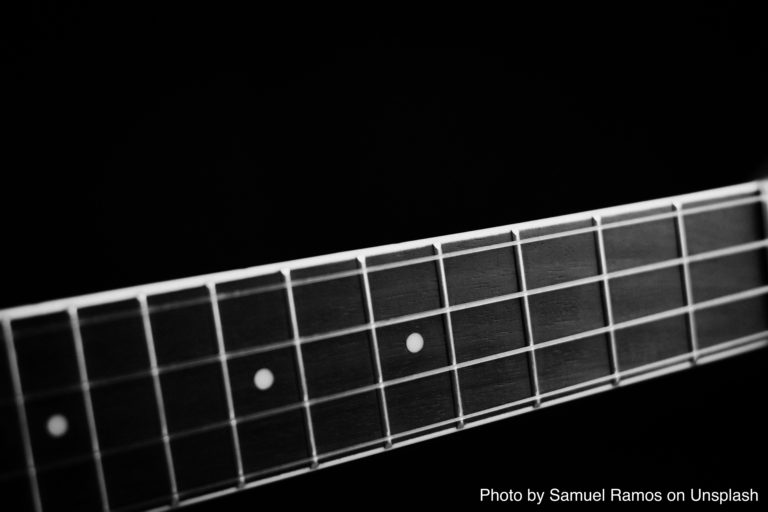Many tutor books and beginner ukulele courses feature a G7 chord quite early on. Along with C7 they are often among the earliest chords you are encouraged to use but what is a 7 Chord and do we need them?
The difference between G and G7
An ordinary G Major chord (known as a triad) is made up of three notes from the scale. The First note G, the third note B, and the fifth note D. This 1-3-5 system is used for all major chords. A 7 chord – or to give it’s proper name, a dominant 7th chord – adds the 7th note of the scale as well, in this case F.
This 7th note doesn’t harmonise as well with the other notes and creates a slight clash, creating tension in the music. This tension can be resolved by simply returning to the major chord of whatever key you are playing in.
Why are we encouraged to learn it?
G7 is not really all that different to play than G Major, however when it comes to changing chords it can be a lot simpler. The movement of your fingers from F to G7 to C is quite a bit more logical than using a normal G Major.
There is also a cultural reason for using 7 chords. The ukulele originated in Hawaii and 7 chords help to give Hawaiian music its unique traditional sound.

Is there anywhere we shouldn’t use it?
Yes. 7 chords create slight dissonance and tension in your music which needs to resolve. If we are playing in C Major we can resolve from a G7 chord to a C major chord. However if the music we are playing is in the key of G Major we need to resolve onto a G not a G7. A simple rule to follow is that you can always play a major chord where the music tells you to play a 7, but you can’t always do the opposite.
So which is better?
There isn’t really a good answer to this. Here at The Ukulele School we teach G Major first and don’t introduce G7 until quite a bit later. This is simply because we feel that in the long term G Major is the more useful and versatile chord to know. We also want to teach some of the underlying theory that goes with these chords explaining the sound of a major, minor or 7 chord. We find that as part of an overall scheme it makes more sense to teach all major chords to begin with.
Let us know what you think
We know that this is another one of those areas where different ukulele teachers do different things. Let us know what you think…
More from The Ukulele School

